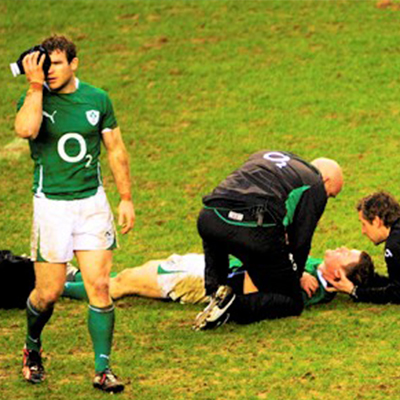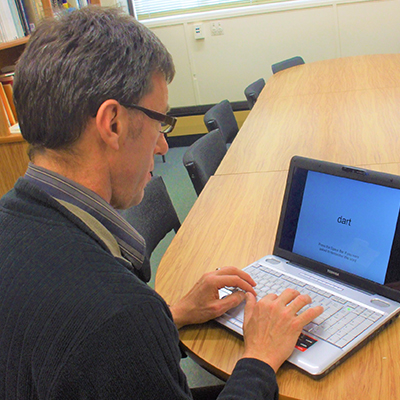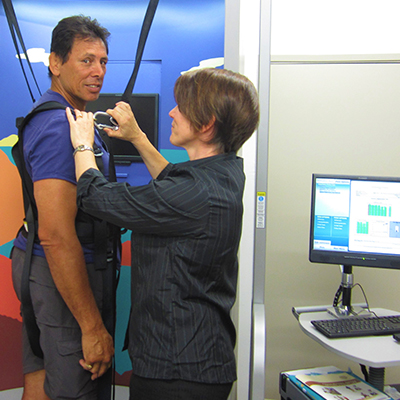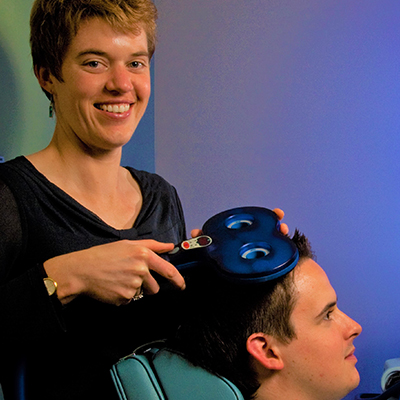World Rugby/NZR/AUT NZ RugbyHealth project
The project provided a snapshot of the current physical and neuropsychological health of retired rugby, cricket and hockey players. Data were collected from October 2012 to March 2015 for 485 participants: 131 retired elite rugby, 281 retired community rugby and 73 retired non‐contact sport players. The four studies within this project were: Study A – General health assessment; Study B – Neuropsychological health assessment; Study C – Balance assessment; Study D – Brain excitability assessment.
Study A – General health assessment
Researcher: Patria Hume et al.
- Hume PA, Quarrie KL, Lewis G, et al. New Zealand RugbyHealth study: Self-reported injury experience and current health of former rugby union and non-contact sport players. Sports Medicine 2022 28 January 2022. DOI: 10.1007/s40279-021-01630-7

Retired players (elite rugby, community rugby and non‐contact sport) who completed the survey reported better health, were more likely to be in long‐term relationships, generally had higher incomes, and were less likely to smoke cigarettes when compared to New Zealand males in general. Retired rugby players had more injuries during their sporting lives when compared with non‐contact players. Retired rugby players reported current higher levels of osteoarthritis and cardiovascular issues when compared with retired non‐contact sport players. Retired rugby players drink more alcohol during a drinking session but have fewer drinking sessions per week when compared with retired non‐contact sport players. Regardless of sport played, retired players who reported four or more concussions during their sporting careers, compared to retired players who did not report a concussion, reported more injuries during sport, more hospitalisation for injury, lower ratings for current health, and more health concerns in the last 12 months. Regardless of sport played, there were no clear differences between the concussion groups for marital status, hours worked per week, income, arthritis, medication use, mental health issues, sleeping patterns, frequency of alcohol use, current smoking levels, and current physical activity levels.
Study B – Neuropsychological health assessment
Researcher: Alice Theadom
- Hume PA, Theadom A, Lewis G, Quarrie K, Brown SR, Hill R, et al. A comparison of cognitive function in former rugby union players compared to former non-contact sport players and the impact of concussion history. Sports Medicine. 2016;47(6):1209-20. Doi 10.1007/s40279-016-0608-8

Past participation in rugby, or history of concussion, were associated with small to moderate neurocognitive deficits (as indicated by worse CNS-vital signs scores) in athletes post retirement from competitive sport. A greater proportion of former rugby players than expected showed deficits in composite memory, verbal memory, and reaction time, in addition to processing speed and complex attention for elite rugby, and psychomotor speed and motor speed for community rugby. Retired elite rugby players compared to non‐contact sport players had more variability, and performed slightly worse on some, but not all, measures of cognitive ability (i.e. brain function) in the neuropsychological test used in this research. Regardless of sport played, retired players who reported four or more concussions during their sporting careers, compared to retired players who did not report a concussion, performed worse on some, but not all, measures of cognitive ability in the neuropsychological test used in this research.
Study C – Balance assessment
Researcher: Patria Hume et al.
Journal article coming soon

Regardless of sport played, retired players who reported one to three concussions during their sporting careers, compared to retired players who did not report a concussion, had worse results on one of five balance tests.
Study D – Brain excitability assessment
Researchers: Gwyn Lewis et al
- Lewis GN, Hume PA, Stravric V, Brown S, Taylor D. NZ Rugby Health study: Motor cortex excitability in retired elite and community level rugby players. New Zealand Medical Journal. 2017;130(1448):34-44. New Zealand rugby health study: motor cortex excitability in retired elite and community level rugby players (nzma.org.nz)

We provided some evidence of altered cortical motor excitation (i.e. the function of connections between brain cells) and GABAB mediated-inhibition in retired elite rugby players in comparison to athletes retired from non-contact sport, although differences in body size could be a confounding factor in the measure of resting motor threshold. These findings were not present in retired community-level rugby players.
Involved researchers
 Patria Hume
Patria Hume
 Alice Theadom
Alice Theadom
 Gwyn Lewis
Gwyn Lewis